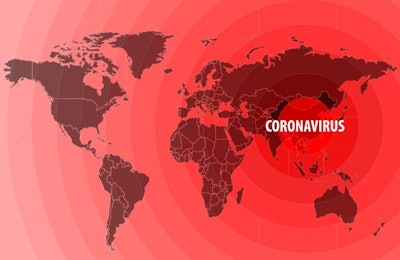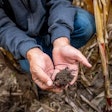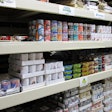
The supply of pet food in East Asia and Southeast Asia has been touch and go ever since the novel coronavirus (COVID-19) pandemic gripped the world. Millions of pet owners from these two Asian regions — with a combined population of 2.4 billion — scrambled to stock up on pet food just before the World Health Organization (WHO) declared a pandemic on March 11, 2020.
In Wuhan, China, where the outbreak began, pet owners — estimated to be at least 300,000 strong in that area — were caught unprepared to secure food for their pets before the Chinese government placed their city under full lockdown. News of starving and abandoned pets in Wuhan triggered the first wave of panic-buying for pet food everywhere. Soon, almost every country implemented lockdowns that threw the supply of pet food in these parts of Asia into turmoil.
The pandemic bogged down almost every aspect of pet food processing, shipping and distribution. While industry players in the region looked for ways to cooperate to move business forward, it was apparent that e-commerce must step up so that millions of pets cooped up with their owners in homes could eat. The virus has turned e-commerce into the new-normal channel for buying pet food; online shopping holdouts risk their pets going hungry.
Here's a look at how key pet markets in East Asia and Southeast Asia are being affected by the COVID-19 pandemic.
Philippines
The Philippines, population 109 million, has the highest dog ownership (one pet dog for every eight people) rate in the region. This helps explain why even lesser-known pet food brands were selling out before the start of the Metro Manila lockdown on March 16, 2020. The situation wouldn't have been so dire if the government declared pet food among the essential items that should be readily available. But as outbreak fears peaked, pet shops were shuttered, leaving pet owners in the hands of online pet shop operators. Sensing the gravity of the situation, new virtual pet stores quickly went live but instead of helping out some of them blatantly engaged in price gouging. Unfortunately, the few conventional pet stores that would occasionally open for a few hours a day were also tempted to earn more by charging about US$10 more for a sack of pet food.
Pet food prices in the Philippines are not regulated by the state or industry, so the question now is whether pet shops will keep their new high price tags or roll them back to pre-pandemic rates when the health crisis is over.
Hong Kong
Hong Kong had quite a head start on everyone as months of political unrest prior to the COVID-19 outbreak gave online shopping in the area a sudden boost.
A gateway to the region and a shopping mecca, Hong Kong wasn't too keen on e-commerce until anti-government protests and now the novel coronavirus forced its citizens to retreat with their pets to the safety of their homes. Since retail establishments are never far away, only 4% of overall retail spending in Hong Kong was done online in 2018 while China managed 24%, based on a 2019 report by FIS Worldpay, a global e-commerce and payment technology company. Today, Hong Kong consumers don't have much choice but to shift in a big way to home deliveries of ready-to-eat meals and groceries that include pet food.
Although no critical pet food shortage has been reported, Hong Kong's trade with China, one of its major sources of pet food, was affected when the government closed most of its land borders with mainland China.
Malaysia
Malaysia's partial lockdown to combat COVID-19 was originally set from March 18 to March 31, 2020, but has so far been extended three times, most recently to May 12. The erratic extensions of the Movement Control Order (MCO) have strained the supply of pet food in retail outlets nationwide.
Malaysia's Ministry of International Trade and Industry classified animal feed as essential goods but treated pet food otherwise. This presents a problem to pet food producers like Pet World Marketing Sdn. Bhd. whose warehouse suddenly couldn't receive and dispatch 3,500 pallets of pet food daily as it normally would. It also distributes to 20,000 retail points nationwide, but with all pet shops closed and supermarkets unable to receive more than a month's worth of new deliveries during the MCO, the company feared that their furry customers were going to go hungry.
It is in villages in Malaysia classified as COVID-19 hotspots, where a more serious pet food crisis looms. Residents in virus-hit villages are barred from leaving their houses even to buy food, let alone pet food. All roads to these hotspots are sealed, making pet food deliveries impossible so households must subsist on government rations of basic commodities. Provision for pet food is by special request or pet owners could be forced to share their food with their pets until the lockdown is lifted.
South Korea
Online retailing of pet food went mainstream in South Korea in 2016, contributing at least 30% to total annual pet food revenues. That same year, South Korea recorded over 5 million single-person households (28% of total households) that are likely to have pets, usually a dog.
The rise in the number of single-person households with pets was not a problem until many of them got sick with COVID-19 and had to be quarantined for treatment, leaving their animals with no one to look after them. In Seoul's Seocho district, a free dog care service was introduced in March for pet owners who live alone and came down with COVID-19. Their dogs will be fostered at Seocho's ward office and provided food if the owners cannot afford it. The fostering service is limited to Seocho residents and has limited capacity, but it can be replicated in other places where many pet dogs and cats have become separated from their sick owners.
Today, online sales of pet products in South Korea are driven not only by promotions and discounts and people's busy lifestyles, but also by fear of the novel coronavirus and the need to follow stay-home orders. One in four South Koreans spends at least US$90 on pet products every month, according to the KB Financial Group.
Singapore
Singapore's “circuit breaker” measures to fight the spread of COVID-19 guarantee that pet food hoarding is unnecessary as pet supplies stores will be open. It is business as usual for Pet Lovers Centre (PLC), Singapore's largest online pet shop and largest pet care retail chain in Southeast Asia. However, due to an unusual surge in demand over the past two months, it is currently asking customers to place their orders in advance. PLC also said it beefed up its home delivery team so they could fulfill all orders. There are at least 10 other pet food delivery services in Singapore and, aside from pet food, most purchases have been for health and sanitation products.
China
China's two biggest online retailers JD.com and Alibaba-run Tmall noted huge volumes of orders for pet food and cleaning products just when lockdown orders were issued and when rumors spread that pets may be suspect carriers of the disease. Pet shops with no online strategies saw their sales dry up.
Hong Kong-based think tank Fung Global Retail and Technology estimates that 38% of China's pet food is now purchased online, which directly affected offline sales at a registered 30% decrease as the novel coronavirus rid key Chinese cities of shoppers. Business owners said they hope the pandemic's effect is only short-term so their in-store sales can recover.
Alibaba's Taobao, a Chinese online shopping website and the world's biggest e-commerce platform, noted that 70% of pet-related purchases were for food, treats and health supplements. Taobao anticipates that the fast-moving pet products on its system could exceed 50 billion yuan (about US$7 billion) in sales in 2020 and in the next couple of years after the COVID-19 outbreak.
In a teleconference among industry leaders attended by some 500 representatives from the pet trade in February 2020, it was revealed that all companies in the pet business worry about the pandemic's grave impact on the industry. Dr. Jinquan Wang, secretary general of the National Pet Industry Science and Technology Innovation Alliance, said the current assets of 55% of the companies could only be maintained for a maximum of three months while 26% have assets that could last for six months.
Today most pet food manufacturing operations have resumed, and big companies like Yantai China Pet Foods were helped by the fact that they had factories around the world to pick up the load from plants that closed during shutdowns. The forum called for industry-wide cooperation to bring China's pet industry back to its feet following the relaxation of lockdown measures to reopen the economy.
Read more
View our continuing coverage of the coronavirus/COVID-19 pandemic.


















